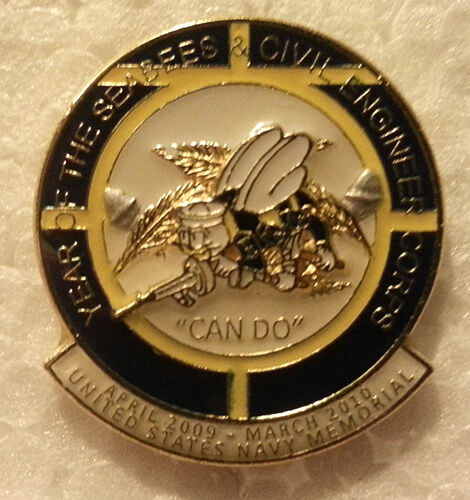-40%
US Stamp #10A on 1854 Cover written by John Telemachus J.T. Johnson Evangelist
$ 129.76
- Description
- Size Guide
Description
1200 dpi scans:Stamp is believed to be #10A (orange brown type II with inner lines recut). The letter and postmark are from 1854 which eliminates Stamp #11 (though 11A is a possibility as dull red).
I leave the stamp collector to decide via the accurate scans. There are no guarantees with this purchase. The value and rationale for purchase is the historical significance of a letter written by T.J. Johnson (consider the stamp/cover a bonus).
Interesting find...originally, this item was to be listed for its stamp/cover value (which is hefty...approx 0 catalog value if the stamp is #10A),
but
upon examination of letter, I discovered this was written by T.J. Johnson (a member of the House of Representatives, and noted
evangelist). His lengthy biography follows. This letter was written in 1854 and addresses land holdings, his father and his preaching.
Single large sheet folded in half...age discoloration, stains, soiling, tears and folds are numerous...but do not take away from content and
readability
(although handwriting is difficult to decipher).
John T. Johnson was born on November 5, 1788, in Scott County, Ky. His parents were of Welsh descent and moved from Virginia to Kentucky. They were members of the Baptist Church, and they trained their children in principles of honor, virtue, and patriotism. John T. Johnson was reared amid the dangers and privations incident to pioneer life in Kentucky. His education was the best that could be had in that country. He spent two years at Transylvania University. He then studied law with his brother, who was a distinguished politician and lawyer. He married at the age of twenty-three and settled on a farm on South Elkhorn. In 1813 he was honored with the place of volunteer aide on the staff of General Wainson at Fort Meigs. In 1814 he began the practice of law and was elected to represent his county in the State Legislature. He was re‑elected for several terms. He became very prosperous and successful both in his farm and his law practice.
He realized the truth of the proverb, "He that is surety for his friend shall smart." He became surety for some friends, and for this voluntarily gave up all that he had made to pay the debts of others. He says: "I never felt happier than when the burden was lifted, although it cost me fifty thousand dollars of fine real estate." He did not try to escape paying the debt. He had said by becoming surety for his friends that if they did not pay their debts he would, and this he did. He was not discouraged, but cheerfully resumed his business career and soon became prosperous again. In 1820 he was elected to Congress, and was re‑elected in 1822. At the height of a successful business career and at a time when he was rising rapidly in political affairs, much to the regret of his friends, he retired to private life. He says: "A sacred regard for domestic life moved me to take this course I had so long desired." It seems that in the providence of God he was being led into a different field of labor.
He was trained in the Baptist faith, and early in life received an impression that he ought to be a Christian. However, the affairs of life crowded upon him and he did not attach himself to the Baptist Church until he was thirty-three years of age. Mr. Campbell was publishing the Christian Baptist at that time. He became disturbed in his Baptist faith and determined to examine it in the light of the Bible. He says: "My eyes were opened and a new interest awakened in Christianity." He further adds: "I was convinced, won over, and contended with all my might in the private circle."
He soon began to preach the gospel. He thought that he should instruct, enlighten, and restore the Baptist Church, of which he was a member, to the New Testament order of work and worship. He was now forty-two years old, in the prime of his manhood. He was cool, courageous, and collected under the most trying circumstances. He never became excited, but moved about in a most stately way amid the most exciting scenes. He was unable to get the Baptist Church at Great Crossings to accept the New Testament as its only creed, so he resolved to establish a church on the Bible alone as containing the infallible rule of faith and practice. He succeeded in doing this. He gave up everything in order to preach the gospel. He lived in the county with Barton W. Stone. He soon joined Mr. Stone in editing the Christian Messenger, and he continued this work for three years, or until Stone moved to Illinois. He was a clear, forcible writer, and his editorials added much to the cause of Christ at that time.
There were two groups of religious people at that time. One group had been taught by B. W. Stone, and the other had been led to see the truth by Alexander Campbell. Those who had been taught by Stone were called "Christians," while those who had been taught by Mr. Campbell were called "Disciples." These two groups soon began to overlap in territory and in interest. They had started without any knowledge of each other; but as they both believed the same thing and practiced the same thing, they were united in faith and in the Lord, but did not recognize this union in their relation to each other. John T. Johnson was a great factor in 1833 in bringing together and getting each to recognize the unity, which already existed between the two groups. He says: "I was among the first, in cooperating with B.W. Stone to suggest and bring about a union between the church of Christ and that large body of Baptists which had renounced all humanisms in religion." He was so impressed with the Bible teachings on unity that he made the theme of unity paramount in all of his preaching. He reasoned well, that he who does most to unite the followers of Jesus does most for the conversion of the world.
It has been said that of all the pioneers of the Restoration, John T. Johnson was the most devoted, zealous, self-sacrificing. He could well say, like Paul, to his fellow apostles, that he had labored more abundantly than they all. There were few States in the Union at that time in which he did not preach the gospel and establish churches. Most of the large cities at that time were visited by him, and nearly always a church was established before he left. He was a man of marked individuality. He was apparently a delicate man. His bearing was gentle, refined, and dignified. His address was pleasing, his enunciation clear and distinct, and his reasoning convincing. He spoke rapidly. He was calm, self-possessed, and his deep, earnest manner of tone, gesture, and expression of countenance aroused the human soul to action. The audience always listened with rapt attention to him. He labored incessantly as an evangelist for seventeen years and became known as "The Evangelist of Kentucky."
While Mr. Campbell was in Nashville, Tenn., preaching, John T. Johnson visited Nashville, and, with his usual zeal, at once began a series of meetings. Mr. Campbell and Mr. Johnson visited Murfreesboro and Clarksville, and churches were established in these towns. This was in 1854 or 1855. John T. Johnson then visited Hopkinsville, Ky., and delivered eight discourses there, then passed on north to Louisville, and then to Indianapolis, Ind.
While in a meeting at Lexington, Mo., in December, 1856, he fell sick of pneumonia, and passed away on the evening of December 24. Mr. Campbell said of him: "I presume no laborer in word and doctrine in the valley of the Mississippi has labored more ardently, more perseveringly, or more successfully than has Elder John T. Johnson, during the whole period of his public ministry. How many hundreds, if not thousands, of souls he has awakened from the stupor and deathlike sleep of sin and inducted into the kingdom of Jesus, the King eternal, immortal, and invisible, the living know not."
The venerable Walter Scott, upon hearing of his death, wrote in the
Christian Age
that the sadness of his death, "carries to the bosoms of the brethren and relatives of the deceased so great a burden of grief, of woe, of wailing, and tears, that any effort on our part to increase or intensify it by words would be equally indiscreet, unfeeling, and unavailing. The stroke has fallen on our hearts with the unexpectedness of a jet of lightning from a cloudless sky."
John T. Johnson was a plain and simple preacher of the gospel. He presented the facts, commands, and promises of the gospel in a simple way. He was well suited to present the gospel to a plain and simple people. He was direct in all that he said; he used no circumlocution in reaching the point; he attacked sin and error directly. It is said that he never attempted ornamentation in any speech that he ever made, that he was the most practical preacher in his day; he never quoted a line of poetry in any of his discourses. Like Paul, he was determined to know nothing while in the pulpit, "save Jesus Christ, and him crucified." The desire of his soul was to enlist soldiers in the army of the Lord and to make them feel that they must fight the good fight of faith. John T. Johnson did much for the cause of Christ, and many in the great day will have cause to rejoice because of his labors.
-From
Biographical Sketches Of Gospel Preachers
,Gospel Advocate Company, Nashville, Tennessee, 1932, pages
42-46
Letter To Alexander Campbell on The Death Of Mrs. J.T. "Sophie Lewis" Johnson
Obituary of Mrs. John T. “Sophie Lewis” Johnson
"GEORGETOWN, Aug. 23, 1849.
Beloved Brother Campbell:
—
This day closes the earthly career of my companion, the dearest object to me upon this earth, and has been for thirty-eight years. She was the youngest daughter of one of the most respected and beloved families residing on Townfork, Fayette county, near Lexington, the late Judge Lewis. The father and mother were highly respected members of the Baptist Church, and exerted a most salutary influence on all around them.
My wife was born on the 13th October, 1796. We were married on the 9th October, 1811. She was the mother of ten children, five of each sex. We lost four in infancy, a little girl and three little boys. Three of our daughters are married; and the four are members of the Church of Christ.
In the year 1821, I united with the Baptist Church at the Great Crossings, my birth place; and had it not been for the unfortunate teaching of that day, my wife would doubtless have commenced her religious race with me; for she was remarkably pious, and gave me every encouragement to persevere. In due time the Christian Baptist made its appearance, and dispelled the traditions of the fathers. The glorious light of the Bible began to dispel the dark clouds of ignorance and superstition. These matters were brought up for investigation; I became a convert to the great principles of this reformation, which you advocated go ably against a host of opposers. Fired with the truth, on the second Saturday in February, 1831, in conjunction with two others, I constituted a church, at the Great Crossings, on the Bible alone, with a determination to spend my life in its advocacy. I knew the thorny road I had to travel, and the sacrifices that would have to be made. I have realized all that I anticipated; as the Lord is my judge, so far from regretting the step taken, it has been, and is a source of the profoundest gratitude and highest joy. At that same meeting, I had the unspeakable gratification of immersing my wife, my brother Joel, and his wife. How could I feel otherwise than grateful to you, as the man who had been the means of so much happiness to me! These mighty principles have grown with my growth, and strengthened with my strength.
My friends knew that I had made great sacrifices in money and time, in the advocacy of this cause; but I have never had cause to regret it. For some eight years, the sacrifice of personal happiness, owing to my absence from home, preyed heavily upon my wife, and seemed to be more than she could bear. But the cause was dearer to her than life. She knew it had to be advocated by some one, and that sacrifices were indispensable. We conversed freely upon the subject, and with a truly noble and self sacrificing spirit, she rose superior to everything earthly. From that time till her death, she manifested the most entire resignation and Christian cheerfulness.
My beloved brother Campbell, I have enjoyed with her a heaven upon earth, for thirty-eight years! It seemed to me an one bright, sunny day, except when she was assailed with disease. She was ALL IN ALL to her little family. She was a favorite with all her connections—loved most by those who knew her best. Our entire domestic circle has sustained a loss that can be better felt than expressed. I believe I can truly say, that I have the sympathies of our entire population, for so great a loss. This is to me more precious than the gold of Ophir. This was the twenty-sixth day of her sickness—the typhus fever. She bore it with Christian fortitude, as all can testify who ministered to her in her affliction.
For ten days, there was an alternation of hope and fear on our part. On three or four occasions, I gave up, and apprised her of her approaching dissolution. What perfect resignation! What a desire to depart and be with Christ! She called for her children on each occasion, and I shall never forget the affectionate and interesting interviews she held with them! All the beholders were astonished and delighted. So full of faith, and hope, and love! She exhorted them to lead a godly life, and meet her in heaven! Her constant theme was heaven as her home. Not a cloud intervened. She seemed to reserve her last parting blessing for one who she knew was faithful to her during life, and doted upon her with an undying affection. 'My dear husband, farewell; the Lord will take care of you.' I thank the Lord it is my privilege to feel, and weep, and unbosom myself to my friends. For twenty-six days I had the happiness of being by her bedside, anticipating her wants. The Lord gave me strength to bear up under it. I shall never forget those friends who gave me their assistance during that trying period, and all, for there were many, who proffered assistance.
I can never sufficiently express my gratitude to Drs. Barlow and Desha, for their kind, unwearied, constant and eminent services. All was done that physicians could possibly do, for her restoration. Her feeble constitution gradually declined, although she was relieved of disease more than ten days before she died. It is due to her to say that she submitted, without a murmur, to the sacrifices I made in the good cause. And it is to me a source of unbounded gratification that she was not only an active member of the Female Sewing Society of Georgetown Church, fur the benefit of the Female Orphan School at Midway, but a subscriber of 0, and that she lived long enough to pay . the first installment, and to participate in transmitting on behalf of the Society.
I feel indebted to the Lord beyond expression for his great kindness, and I feel more resolved to be active in his cause. I hope to meet you in Cincinnati at the grand convocation for mutual congratulation, mutual encouragement, mutual advice, and mutual effort for the advancement of this best of all causes. Most affectionately yours in the good hope, J. T. Johnson".
—Sources: Millennial Harbinger, 1849, pages 599,600; Biography of John T. Johnson, by John Rogers, pages 295-297
"J. T. Johnson"
"This venerable and veteran evangelist is spending a few days with the church at Midway, Ky., continuing a meeting commenced by John Rogers, sr, whose engagements called him away after he had, by his earnest, eloquent, and lucid proclamation of the gospel, awakened a deep interest in the hearts of many. We have had also the company of Jacob Creath now near seventy-seven, and wrapt in 'ever during darkness, he still loves, he says, to '
see
' his brethren, and to join them in the services of the sanctuary. We can well imagine that this is, indeed, his chief delight He occasionally speaks still, and though the eye has lost its fire, and the once manly and commanding voice its melody, his listeners still weep, while he talks to them of that hope which illuminates the soul, and cheers with the prospect of his soon entering upon the rest remaining for the people of God, where his long, dark night will have become eternal day.
Our meeting has been one of much interest. Thirteen have been added to the congregation, and the religious affections of our community, generally, have been reawakened and strengthened.
We rejoice with our brethren at Athens, Mount Zion and Republican, in their recent prosperity. They, too, have enjoyed seasons of refreshing, and numbers have been added to their communion. Candor compels the confession, however, that fifteen years' experience in the ministry has done much to abate our joys over returning prodigals. How often, alas! does the lapse of only one short year, bring sorrow to the hearts of the earnest and true, on account of apostasies and alienations from the Lord and his cause. For this dreadful issue of evangelical labor, there is no remedy but in faithful, energetic pastoral labor. But we intended a sketch of
John T. Johnson,
for the gratification of such of our readers as have never seen nor heard this laborious servant of our Lord.
He is now in the sixty-fifth year of his age, and a few weeks since made, in our hearing, this remarkable statement: 'I have been at a protracted meeting for the last
three years,
and during the last three weeks, I have spoken
twenty-seven
discourses.' In illustration of his devotion to the work to which, for twenty-three years, he has given his entire time, it will be sufficient to state, that during the unparalleled winter of '51-2, he continued preaching night and day, in the villages of Mason and Fleming counties, Ky_. The mercury, for days together, remained below zero, the piercing winds whirled the light snow high through the dense air— the cattle sought the sheds, or remained trembling behind any defense that offered against the cutting Wast—fowls remained on the roost, or dropped from it dead; even the crows ventured not abroad against the double terror of frost and storm. The labors of servants were limited to the care of stock, and the piling of fuel upon the heated and blazing hearths. Still,
J.T. Johnson
was traveling from point to point, preaching to the perishing the unsearchable riches of Christ. His stature is about five feet ten inches, his form remarkably slender and erect, his hair, once jet black, is now sprinkled with white, has become thin, and much of it has fallen; yet we never could think him bald. His general complexion, the color of his eyes and hair, indicate a decidedly bilious temperament When introduced to him in the private circle, you recognize at once the well-bred, high-toned gentleman. No length of acquaintance-ship, no amount of fatigue, ever tempt him into the clownish in manners. His conversation easy, perfectly familiar, sometimes with his intimate friends even chatty, is still chaste, dignified, and almost wholly of things pertaining to the kingdom and patience of the Saviour. The necessity of greater liberality, commendations of such churches and individuals as he thinks have 'acted nobly'—the interests and prospects of the Orphan School, of Bethany College, of Bacon College, the movements of his preaching brethren, the necessity of preserving labor, paid or not paid—such tire some of the themes that employ his tongue, and rest constantly upon his noble and generous heart. When he rises in the pulpit, his movements, countenance and utterance, imply slight embarrassment—the result of unaffected diffidence; and although abundant courage will appear before he closes, and a becoming confidence in his ability to propound and illustrate the gospel, yet his respect for his audience never forsakes him.
His manner is difficult of description. You will think, likely, on hearing him for the first time, that his
'preparatory
remarks' are rather extensive, and you may, perhaps, wonder when his
sermon
will commence.
He is into his sermon from the first word,
and after speaking of various matters pressing upon his attention, if he thinks the great object he has in view will be secured by such a course, he will return to the first point and make it the last Though eminently capable of arranging and delivering methodical and logical discourses, yet, to do this is not his object, but to bring his hearers to believe, and to feel, and to obey the gospel.
He may be thought, by those who do not know him, a 'revivalist.' Such he is not—at least not in the usual meaning of the term revivalist,
but the farthest from it imaginable.
There is no can't, no affectation—his speech being merely earnest conversation. It never enters his mind to play the orator. His addresses are characterized by devotion to the teaching of the New Testament, by
obvious sincerity
and an all-pervading desire for the salvation of his hearers He is speaking of moral courage, or its importance, its propriety, its congruity with
manliness. '
If there be, he remarks, 'an object on this earth supremely pitiable, one is almost tempted to say contemptible, it is a man who, in days of prosperity and health, stops his ears to the gospel of Christ, and, through fear of his fellow-worms, refuses to obey the Saviour, but who, when death stares him in the face, will cry out, and implore the prayers of the people of God. And will the Lord hear the cry of such? What does it say in effect? 'Lord I have lived in sin, I have done thy cause what harm I could, but I can do no more,
I can serve satan no longer,
now, O Lord, receive my poor soul.' 'Because I called and you refused, I will laugh at your calamity, and mock when your fear cometh.' Remember these fearful words. We do not limit the power or benevolence of God, but he will not be mocked Beware! Beware!!' Or he is speaking of the inherent demerit of sin, of sowing to the flesh. Turning toward the female portion of his audience, he will, perhaps, speak thus: 'I am declining, and know it. A few more years will probably close my career, and yet I sometimes hope to see the day when no female will be found on the
dark side,
sowing to the flesh. "When I see a noble, generous-hearted female, whom all admire, advocating the cause of sin by her example,
I blush inwardly.'
But though we might give, perhaps, the precise words, it is impossible to give any notion of the speaker's manner so entirely his own, and on which so much depends.
But John T. Johnson is passing away, and we ask: who shall take his place? Upon whom will his mantle fall? It is a cause of endless thankfulness to the infinite Father, and a source of highest joy, that for the weary there is a divine rest appointed, for the faithful warrior an unfading crown, and that the saints shall all met at last in their home above."













